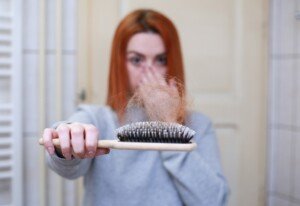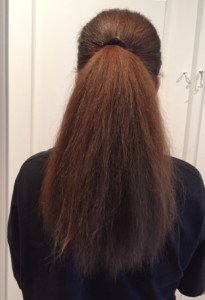
Is there a way a doctor can tell the difference between hair loss from stress and from aging?
Chronic stress can definitely cause hair to fall out. The aging process as well is notorious for causing hair loss.
Is it possible, then, to determine if one’s hair loss is from getting older as opposed to stress and anxiety?
“Yes; when the body is under stress, whether due to illness, a surgery, changes in hormones, medications or severe psychological stress such as the loss of a loved one, it’s not the body’s top priority to grow hair,” explains Allison Arthur, MD, FAAD, board certified dermatologist with Sand Lake Dermatology Center in Orlando, FL.
“This can result in a condition called telogen effluvium, where some of the hair follicles flip into a resting phase and stop growing new hairs,” says Dr. Arthur.
“Patients with telogen effluvium typically report a sudden increase in shedding—losing more hairs than usual when showering or styling their hair—and thinning all over the scalp.
“The good news is that telogen effluvium is usually temporary, and eventually those hair follicles will turn back on and start growing new hairs after the stresser has resolved.”
There are several things you can do while undergoing prolonged stress to help put a damper on hair loss.

• When putting in a ponytail, gently pull the hair through the fastener rather than yanking it through.
• When taking out a ponytail, snip the fastener with a toenail clippers (make sure no stray strands get caught up in the snipping) and gently extract the fastener. Otherwise, pulling off a fastener will surely pull some hairs with it.
• Obviously you’ll need a ready supply of fasteners on hand.
• After washing your hair, gently detangle with your fingers rather than with a comb or brush.
• When your scalp itches, don’t scratch with a fingernail, as this can rip strands out of their follicles. Instead, press a fingertip to the itching area and briefly massage.
“Senescent alopecia, or age-related thinning, progresses slowly with subtle decreases in hair density over time,” says Dr. Arthur.
“Patients with senescent alopecia do not report sudden onset of excessive hair shedding.”


























